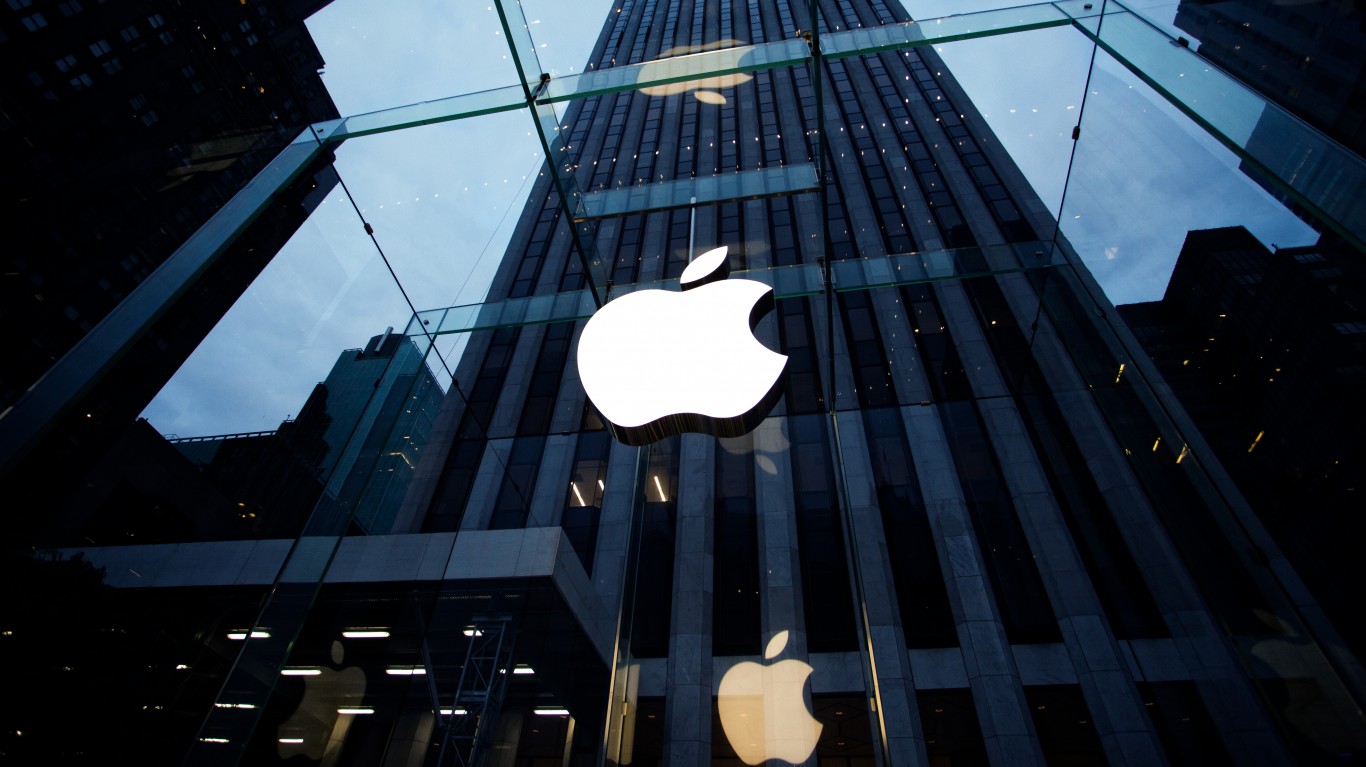Technology
What's Up With Apple: US Stores Reopen, Defying Arizona Bill, Chipmaker Bond Sale

Published:

Since closing the stores almost exactly one year ago, Apple Inc. (NASDAQ: AAPL) confirmed on Monday that all 270 of its U.S. Apple Stores are once again open. Not every store is open for in-store shopping, however, but customers can pick up online orders at those stores.
Apple began closing its stores on March 13, 2020, and had begun reopening the stores in May. By mid-June, the company had reopened 54 of its U.S. Apple Stores and 365 of its 510 international stores.
Then a spike in the number of U.S. coronavirus cases led the company to begin closing stores again. Apple reacted quickly to spikes in the spread of COVID-19, and some stores were closed and reopened multiple times. According to a report at 9to5mac, Apple will continue to monitor local COVID-19 conditions, and some U.S. stores could temporarily close again.
Internationally, about a dozen Apple Stores in France and Brazil remain closed, while locations in Mexico are reopening Tuesday.
Last month, legislators in North Dakota rejected a bill that would have forced Apple and Google to use third-party payment systems in their app stores. Also last month, Arizona state representative Regina Cobb was preparing to introduce a bill in the state legislature that would have required the companies to do the same thing.
That unleashed a flurry of lobbying from Apple and Google even before Cobb formally introduced the bill. As Cobb put it, “We went through a very difficult weekend where Apple and Google hired probably almost every lobbyist in town.”
Apple’s chief compliance officer, Kyle Andeer, told Protocol that the Arizona legislation amounts to a “government mandate that Apple give away the App Store.” Apple is getting moral support from the conservative American Legislative Exchange Council (ALEC), which sent Arizona legislators an email suggesting the state use the defeated North Dakota legislation (written by ALEC) as a template for Arizona.
App developer David Heinemeier Hansson, co-founder and chief technical officer of Basecamp, is developer of the $99-per-year Hey email program. Last year, Hansson refused to pay the 30% royalty fee that Apple charges some developers.
He told Protocol that if Arizona passed the legislation, the state would become “the most attractive place in the world to start a new business that sells software through the app stores.” Apple and Google can’t sit still for that, so expect more sparks to fly soon.
Apple’s main contract semiconductor manufacturer, Taiwan Semiconductor Manufacturing, or TSMC, reportedly has planned a bond offering of some $565 million to help the company finance a new chipmaking plant in Arizona. According to a report last week from Bloomberg, the Arizona plant could cost TSMC up to $12 billion and would produce 5-nanometer chips for Apple’s iPhones, iPads and Macs, among other devices for other customers. The new fab could be ready by 2023.
Thank you for reading! Have some feedback for us?
Contact the 24/7 Wall St. editorial team.